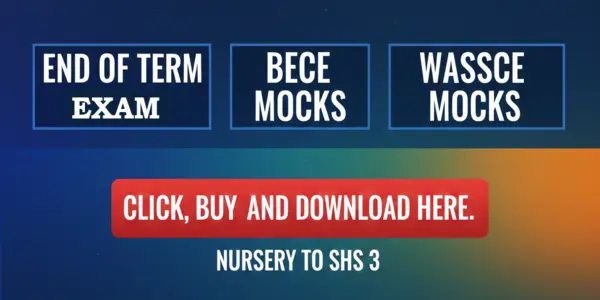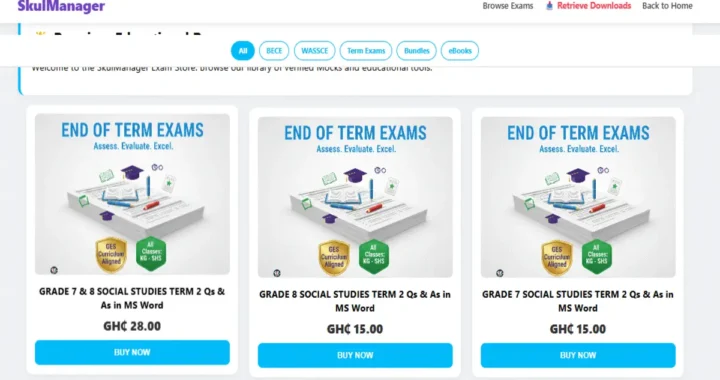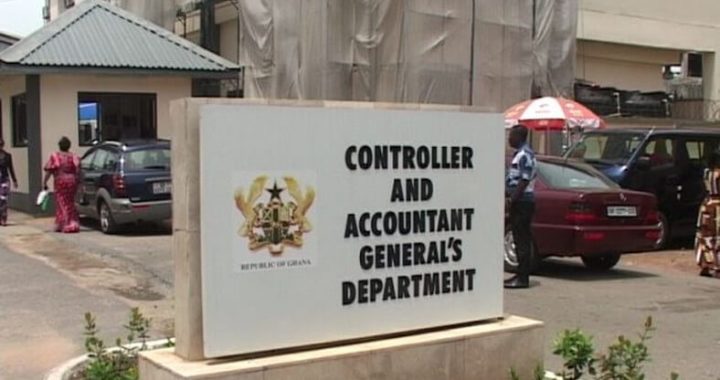6 Steps to Fix Ghana’s Computerized School Placement System (CSSPS)
![Fix Ghana's Computerized School Placement System School placement for sale fraud uncovered by Manasseh Azure's Fourth Estate [VIDEO]](https://ghanaeducation.org/wp-content/uploads/2023/01/School-placement-for-sale-fraud-uncovered-by-Manasseh-Azures-Fourth-Estate-VIDEO-1024x1024.png)
It Is Time For Fixing Ghana’s Broken School Placement System And The Ntion Needs Actionable Solutions for the CSSPS to work and be free from human interference and curruption.
The annual release of the Computerized School Selection and Placement System (CSSPS) results has become a period of national anxiety. Instead of celebrating academic progression, thousands of parents and students are left navigating a system plagued by systemic flaws. The massive crowds at national and regional resolution centers for the 2025 placements are not a new phenomenon; they are proof of deep-rooted, repetitive problems that have eroded public trust.
The integrity of the CSSPS has been compromised by a lack of transparency, protocol placements that bypass merit, and widespread misinformation. While the Ministry of Education trumpets fairness, the reality on the ground suggests otherwise. However, these challenges are not insurmountable. By leveraging technology, common sense, and strategic planning, we can resolve over 95% of these recurring issues and build a system that is truly fair and dependable.
Six actionable solutions the Ministry of Education must consider to make the annual placement chaos a thing of the past.
1. Publish Official Cut-Off Points for All Schools and Programs
Every secondary school has de facto cut-off points for admission. The Ministry of Education should make this official by publishing the minimum aggregate grades and raw scores required for a student to be considered for placement in every school and for every program.
For example, while Presbyterian Boys’ Secondary School (PRESEC), Legon, may have a general cut-off of aggregate 12, the specific requirements for Science, General Arts, and Business differ. Making these benchmarks public on the Ministry’s website annually would manage the expectations of both parents and students. It would eliminate guesswork and ensure applicants understand the competitive standards required for high-demand schools, thereby reducing frustration.
2. Increase Transparency by Announcing Admission Quotas
Before the school selection process begins, the Ministry of Education should announce the maximum number of students each school can admit for the academic year. Furthermore, it should publish data on how many students selected a particular school as their first choice in the previous year. This transparency would give parents and students a realistic understanding of the competition for available slots. Knowing that a school has only 300 slots but receives over 2,000 qualified applicants helps contextualize why even a student with an excellent grade might not be placed there.
3. Educate the Public on School Choice Strategy
There is a pervasive and damaging misconception that a student’s first choice must be a Category A school. This is incorrect, and sadly, this misinformation is sometimes perpetuated by teachers and even headteachers. A student can select a Category B school as their first choice, significantly increasing their chances of securing a placement without the intense competition of Category A schools. The Ministry must embark on an intentional public sensitization campaign to clarify this. While Category A schools are often well-resourced, strong academic performance at the WASSCE level is not exclusive to them.
4. Abolish All Forms of Protocol Placements
The “protocol list” is the single most damaging element to the CSSPS’s credibility. This back-channel system allows children of affluent individuals, politicians, and school staff to gain admission into schools they do not academically qualify for, often at the expense of more brilliant students. This practice makes a mockery of a merit-based system. To restore fairness and integrity, all protocol slots must be completely and verifiably eliminated. Placement should be based on performance, not privilege.
5. Eliminate the Quota System for Public School Applicants
If all Basic Education Certificate Examination (BECE) candidates are assessed with the same questions and graded by the same WAEC examiners, then the placement process should be equally uniform. Reserving 15-30% of admissions in Category A and B schools for public school candidates is a form of favouritism that undermines true meritocracy. While the intention to support public school students is noted, providing them with reserved slots—even if their private school colleagues have better scores—is not the right approach. True fairness means that every student, regardless of their basic school background, competes on a level playing field based on their BECE results.
READ: Online SHS Admission and Enrolment Online for 2025: How to Complete
6. Invest in Our Future
Implementing these solutions requires political will and a commitment to genuine reform. The annual spectacle of desperate parents queuing for days must end.
I challenge the Ministry of Education to adopt these transparent, merit-based policies to permanently fix the CSSPS and restore public confidence.
More importantly, I call on H.E. President John Mahama to look beyond short-term fixes. The intense pressure on Category A schools is a direct result of decades of neglect of Category B and C institutions.
The ultimate solution is to make more schools attractive. We need a bold, long-term national strategy to invest in the infrastructure, facilities, and staffing of these schools, elevating them to the next level of excellence.
Expanding facilities in existing Category A schools and transforming Category B and C schools into institutions of choice is not just a policy decision—it is a nation-building imperative that will define Ghana’s educational legacy for generations to come.
About the Author
Wisdom Kojo Eli Hammond is an education consultant and analyst with a deep focus on Ghana’s pre-tertiary education system. He is the Lead Consultant at Education-News Consult, the operators of the popular BECE preparation portal, BECEPrep.com, and a specialist in digital content strategy and SEO. Wisdom is passionate about leveraging data and strategic communication to advocate for a more transparent and equitable educational system in Ghana.




 Terrorist Attack Ghanaian Tomato Traders in Burkina Faso
Terrorist Attack Ghanaian Tomato Traders in Burkina Faso  New Term 2 End of Term Question: Nursery to Grade 8 Exam Packs (2026)
New Term 2 End of Term Question: Nursery to Grade 8 Exam Packs (2026)  Why MTN Ghana’s Ghs399 Bundle is the Best Data Deal in 2026
Why MTN Ghana’s Ghs399 Bundle is the Best Data Deal in 2026  CAGD Salary Suspension 2026: Deadlines and Actions for Affected Staff
CAGD Salary Suspension 2026: Deadlines and Actions for Affected Staff
Good.
Nice ideas
Thanks